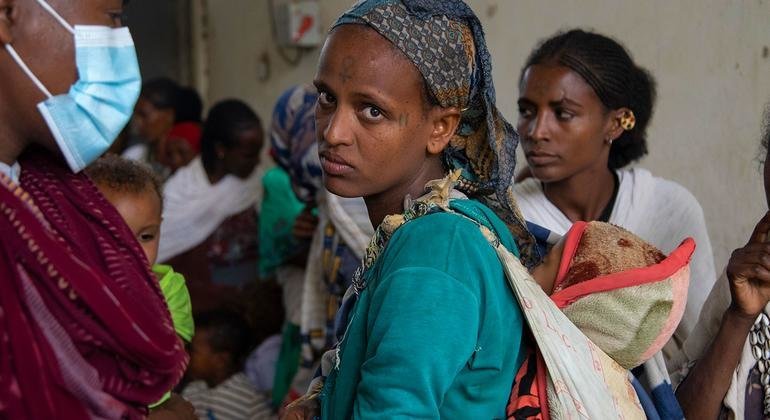“There are 5.2 million people in need of humanitarian assistance in Tigray; that number includes 3.8 million people who are in need of health assistance and we need to reach these people,” said Ilham Abdelhai Nour, World Health Organization Team Lead for Ethiopia, Incident Management System and Emergencies Operations.
‘No access to Tigray’
“We have access in Amhara and Afar, so we know more about the situation there and we were able to intervene and support,” Ms. Nour said, referring to the regions bordering Tigray.
“However, we do not have access in Tigray; there is no air or road access in Tigray for the last six weeks.”
Malaria spike
According to WHO, malaria infections have risen by a full 80 per cent in Tigray and by 40 per cent in neighbouring Amhara compared to last year – although cases are decreasing in Amhara.
But malaria is just one of the deadly threats facing millions of people affected by the conflict and humanitarian agencies have issued repeated alerts on their behalf, since fighting between federal troops and separatists in Tigray erupted in November 2020.
Providing help in Tigray is difficult, as more than half of the region’s health facilities are closed, leaving people untreated for trauma and injuries, food insecurity and malnutrition, sexual and gender-based violence, communicable diseases such as malaria and cholera, as well as reduced access to treatment for non-communicable diseases and maternal and child health services.
Earlier this month, the UN aid coordination office, OCHA, reported that civilians waiting to receive much-needed humanitarian assistance came under fire.
It also warned that newly displaced people in Tigray’s Zelazele were “in a dire situation with the vast majority sleeping in open areas directly exposed to cold weather and other protection risks”.
WHO Director-General Tedros Adhanom Ghebreyesus – himself an ethnic Tigrayan – has echoed widespread concerns about the crisis several times, including last week, when he warned that there was only a “very narrow window” to prevent genocide there.
Despite the physical and telecommunications access barriers faced by aid teams working in Tigray, enough regular updates have emerged from the region – sometimes delivered by hand to WHO – to warrant Friday’s alert, the UN agency insisted.

Mothers bring their children to be treated for malnutrition at a displaced persons camp in Tigray, Ethiopia.
Food shortages
Citing UN World Food Programme (WFP) data, WHO noted that in Amhara and Afar, 19 per cent and 14 per cent of mainly displaced children under five were now food insecure, while in Tigray, “a staggering” 89 per cent of the population is food insecure and nearly half are severely food insecure.
“Almost one in every three children under five in Tigray is malnourished,” said Altaf Musani, Director of the Health Emergencies Interventions, speaking in Geneva. “Severe acute malnutrition among children in the region is six per cent, 65 per cent of children have not received nutritional support in over a year.”
Highlighting the clear link between malnutrition and disease, Mr. Musani described how basic health services had been cut. Understanding the true scale of needs has also been complicated by the fact that only 30 per cent of health facilities in Tigray are still able to provide weekly situation reports to WHO.
Key jabs stopped
“Immunisation services (are) a lifeline to children to keep them alive; those services have stopped,” Mr. Musani said. “We know that there are confirmed reports of stockouts, IV fluids, antibiotics other treatment medicines don’t exist in those facilities, we’ve had first-hand reports of that information.”
As peace talks between the combatants began this week in South Africa, Tigrayan communities urgently need guaranteed and safe access to provide lifesaving assistance, WHO insisted.
“Access was intermittent between March and August and during the humanitarian truce (in Afar, Amhara and Tigray) we were able to bring in, not a lot, but really a small quantity that covers really a small amount of the needs there, said Ms. Nour.
“We were also able to support essential services in Tigray, support the measles campaign there, but we were unable to distribute supplies very quickly because of little cash and fuel. We were unable to undertake malaria prevention activities because of the same reasons; we were not able to extend the COVID-19 vaccination campaign beyond the capital Mekelle, so we have a huge issue of access there.”



